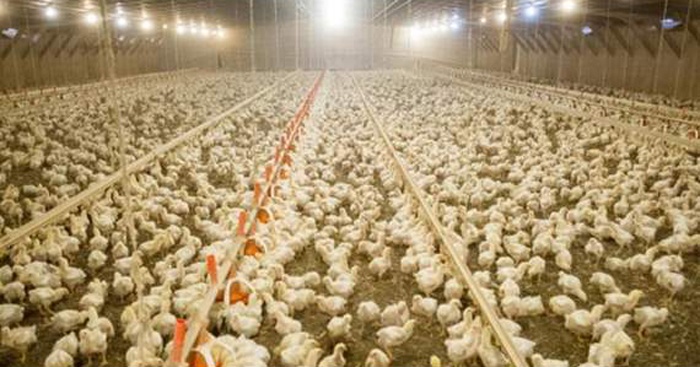SAMARRA, Iraq: An outbreak of bird flu has killed tens of thousands of hens in a rural province north of Iraq's capital, decimating livelihoods overnight as authorities scramble to contain its spread. Near the town of Samarra, about 100 km north of Baghdad, Haytham Al-Hamash's coops have become graveyards.
Masked workers step around a few live hens to pick out the dead birds lying on their sides, tossing them into the back of a truck with a loud thud. "Right now, chickens are dying and we can't do anything for them," Hamash told AFP. His coops have been surrounded by makeshift trenches to keep infected chickens from escaping, as veterinarians in white suits examine the remaining flock.
The outbreak of avian influenza in the northern province of Salahaddin began on Thursday. By Friday, at least 60,000 chickens had contracted it, the governor announced. But Samarra's chicken farmers say their losses have been much higher. "We lost nearly 190,000 chickens," Hamash said. Another farmer, Fuad Barhan, claimed authorities had not been able to support all the coops. "We went to the health ministry and they didn't give us anything. The vaccine, H5, is not available. So the chickens are just left to die," he said.
Iraq's agriculture ministry yesterday said the chickens had been contaminated by wild foreign fowl. "Chickens were isolated, shops were sterilized and we cordoned off the area. Of course we took measures to limit the entry of any Samarra chicken into other provinces," ministry spokesman Hameed Nayef said. Not much more could be done, he told AFP. "There is no vaccine for avian flu in Iraq because the disease does not spread every year. Last year, we did not see an outbreak, while two years ago, it was much bigger than this year," Nayef added.
Agriculture represents one in five jobs in Iraq and five percent of GDP, otherwise dominated by the oil sector. Historically low crude prices last year and the ongoing novel coronavirus pandemic caused an unprecedented fiscal crisis for the country, where poverty rates are set to double. There had been one silver lining: With imports down, local egg production skyrocketed from 11 million eggs at the start of 2020 to 17 million by the summer, according to the agriculture ministry.
Those numbers will likely be slashed. Fearing the spread of avian flu, authorities in the autonomous Kurdish region in the north of the country have banned chicken imports from the south and closed down their own chicken farms. - AFP


